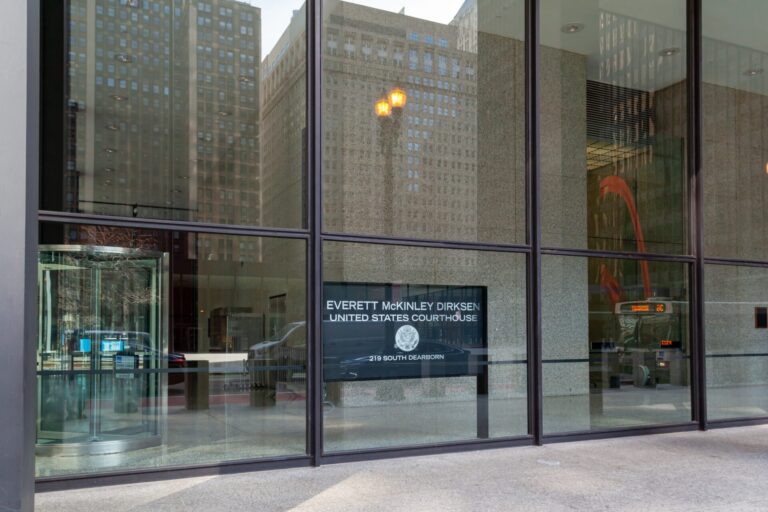Ameren Missouri seeks rate hike amid mounting disconnections

Ameren Missouri is seeking to raise customers’ electric rates by over 15.5%, even as 166,000 customers are behind on their electric bills – with nearly $28 million in total bills past due.
The utility’s proposed $446.2 million rate increase comes less than two years after the Missouri Public Service Commission (MPSC) approved a separate $140 million rate hike for Ameren customers. The latest proposal would raise the average residential customer’s monthly bill by $17.
Ameren is the largest electric utility in Missouri, serving more than a million households in the eastern and central portions of the state. Recent Ameren bill increases have outpaced both national inflation and local wages in recent years, a recent study showed, with the average summer bill increasing by 19.56% and the average winter bill rising 21.05% between 2020 and 2023.
As part of its rate hike requests, Ameren is seeking to increase its return on equity (ROE), a key profit driver for utilities and a cost that is borne by customers. State regulators set ROE, the profit margin utilities can charge customers on qualifying expenditures. For example, if regulators set an ROE of 10% and a utility built a $100 million power plant, customers could ultimately cover the $100 million cost of the plant plus another $10 million in utility profits. In its previous rate case, Ameren had requested an ROE of 10.20% before the MPSC authorized an ROE of 9.53%, the current return. Now, Ameren is seeking to boost that figure to 10.25%.
Utilities strategically time rate case requests to secure regulatory approval of ROEs that are markedly higher than market conditions support, researchers found, costing U.S. utility customers an extra $7 billion annually.
Shutoffs mount as Ameren customers struggle to keep up with rising bills
Relentless rate increases continue to be a source of significant financial pressure for Missouri families, who are increasingly falling behind on utility bills and risking disconnection of their service. Ameren Missouri has shut off service to more than 90,000 households who were unable to cover their bills since March 2024, when a new rule requiring the utility to report disconnections took effect.
Disconnections are a symptom of energy insecurity and the increasing burden of energy and utility costs on ratepayers. People rely on electricity for heating, cooling, refrigeration, medical equipment and internet connectivity. Without power, people face health risks and significant disruptions in their lives.
Ameren’s monthly disconnections peaked in October, at 17,403 – roughly 1.6% of Ameren customers, or 1 in every 64 households. Prior data show that disconnections tend to spike in September and October, ahead of a rule that limits disconnections during cold weather. Missouri utilities are prohibited from disconnecting electric service when the temperature is below freezing (32 °F) and face greater restrictions from November 1 to March 31.
Disconnections have risen sharply over time for Ameren Missouri customers, from 36,515 in all of 2020 to 90,025 shutoffs in just nine months of 2024. Disconnection data are available from mid-2019 through 2022 due to a COVID-era reporting requirement. The 2024 data come after a new reporting requirement issued by the MPSC in September of 2023 that went into effect in March.
| Year | Disconnections |
| 2020 | 36,515 |
| 2021 | 67,726 |
| 2022 | 81,508 |
| 2024 (March to November) | 90,025 |
Ameren Illinois—which has the same parent company—serves roughly the same number of residential electric customers as Ameren Missouri, but reported 18,000 fewer disconnections during the same 2024 timeframe. Other investor-owned utilities in Missouri also had lower disconnection totals and rates in 2024. Evergy—the second-largest electric utility in the state with about half the amount of customers Ameren Missouri has—reported fewer than 34,000 disconnections, about one-third of Ameren’s total. Empire District Electric, a subsidiary of Liberty, reported just 186 disconnections and did not disconnect any of its 140,000 customers between April and November.
Over the past year, utility bill assistance was the second-most frequent request among callers to Missouri’s 211 hotline—which connects residents with resources and public services—behind only housing. One of many comments submitted to regulators opposing Ameren’s latest rate hike request reads: “In June my bill went up $150.00! I understand expenses need to be met but please consider the elderly and those people who are on a fixed income. These rate hikes are making it extremely difficult to survive on a budget. This rate hike is unfair to a lot of people.”
Rate increase sought amid rise in Ameren profits
As Ameren customers face increasing hardship amid rising rates, the utility’s shareholders and executives enjoy hefty profits. The utility reported profits of $1.152 billion for 2023, up from $1.074 billion in 2022. It will announce 2024 profits in February. Ameren’s requested increase to ROE could further inflate profits; Ameren credited its higher ROE in Illinois as a primary driver of increased profit in 2023.
Ameren’s five highest-paid executives, meanwhile, raked in a combined $27.2 million in compensation in 2023. Martin Lyons Jr., the Chairman and CEO of Ameren received $9,009,43 in 2023 and Mark Birk, the Chairman and President of Ameren Missouri received $2,892,627.
Ameren seeks to charge customers for luxury travel, trade association dues
As part of its proposed rate increase, Ameren is seeking to charge customers for various costs that do not clearly benefit them.
One such charge is $600,000 in membership dues to the Edison Electric Institute (EEI), the trade association for the nation’s investor-owned monopoly utility companies. Based in Washington, D.C., EEI engages in lobbying and political advocacy in support of its members. EEI’s social media campaign, We Stand For Energy, is currently running Facebook advertisements targeting Missourians in an attempt to manufacture grassroots support for legislation that would make it easier for monopoly utilities like Ameren to build new fossil gas plants with weakened oversight from the MPSC and increased financial incentives.
The MPSC allows recovery of EEI dues only if a utility can demonstrate a “direct quantifiable benefit to the ratepayer” and “a method of allocating dues expenses between shareholders and ratepayers once the benefits have been quantified.” The MPSC has not allowed Ameren, or any utility, to charge customers for EEI dues in the four decades since it adopted this standard. Still, Ameren attempts to stick customers with the charge.
In addition, Ameren wants customers to pay for its directors’ stays at pricey hotels as well as expenses for alcohol, meals, and entertainment. MPSC staff have noted and objected to these charges, but their inclusion in the rate hike request is part of a larger pattern by utilities of trying to slip luxury expenses into customer rates. In past rate cases, Ameren sought to pass costs for directors’ and executives’ chartered flights, stays at the Ritz Carlton, and trips to China, Italy, and Canada.
Public hearings set for coming weeks
The MPSC will hold five in-person local public hearings and two online hearings to solicit feedback from customers about Ameren’s proposed rate increase, in addition to the written comment option that is already open. After customers objected to Ameren’s last rate hike proposal, the MPSC slashed the increase from $316 million to $140 million.
Photo credit: Paul Sableman via Flickr



